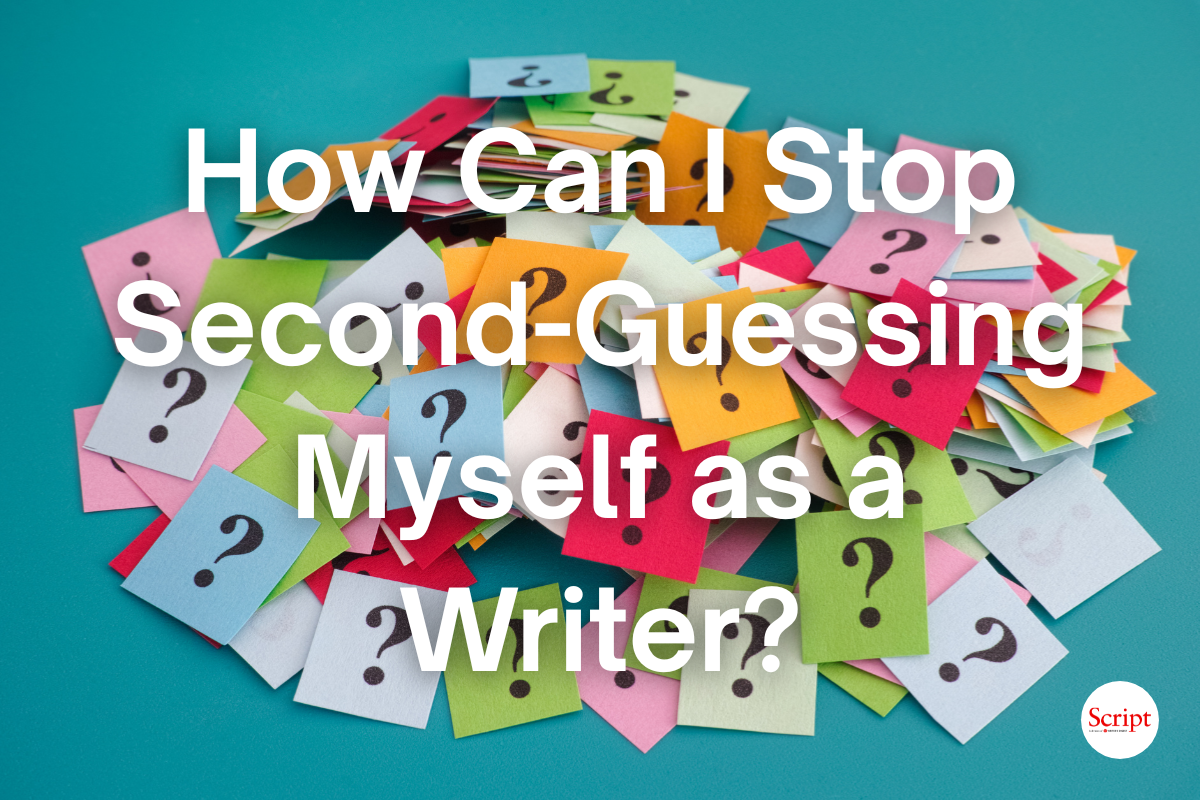How Do I Set Goals While Recovering From Burnout?
Writing coach and Called to Write founder Jenna Avery responds to a writer grappling with burnout and asking about setting goals for the new year.
Welcome to “Ask the Coach.” As a writing coach, I answer questions from writers about making the work of writing happen, tackling craft, business, and personal questions along the way. (Have a question you’d like answered? Check the details at the end of the article about how to submit one.)
Today I’m responding to a question from a reader about setting goals for the new year while also recovering from burnout.
Hi OBOW,
Thank you for writing to ask, and first let me offer both my sympathy and support for the efforts you’ve already made to recover from burnout. It’s no small task, and as someone who’s been in a similar situation, I know it takes as long as it takes. Many writers, creatives, and entrepreneurs around me seem to be experiencing similar circumstances. I’m seeing quite a few thought-leaders advising against pushing hard on the goal-setting front this year.
Whether your burnout is personal, writing-related, or because of the happenings of the broader world, taking the time you need to recover is critical to your ability to generate your best work. So do give the gift of recovery to yourself.
I encourage you to trust yourself and your intuition with goal setting. Already your inner self is hesitating on business-as-usual goal setting, knowing you’re not starting from the strongest position. Let’s trust your inner voice. Thankfully, as you’ve said, you don’t have external deadlines to meet, though — of course — you want to keep your career moving forward and continue to write.
While tools like deadlines and SMART goals (SMART = specific, measurable, actionable, resonant, time-bound) can be useful, they don’t always work well when you’re suffering from burnout and your inner self is crying out for rest, nourishment, and recovery, and can lead instead to writing avoidance and even a kind of rebelliousness to writing at all — a creative backlash, if you will.
(One could argue that burnout is resistance, and that we should fight it, but what I’m finding for myself is that the battle energy prolongs the recovery.)
Instead of goal setting, focus on what would feel good to you.
For example, you might try, “I’d love to write a new script this year” as a focus, rather than setting a strict goal with a deadline. Or perhaps, “It would feel great to develop new concept ideas and see what emerges.”
Alternatively, you might focus on the practices, habits, or rituals you’d like to have in place around your writing, like writing a journal entry each day to connect with your characters before working on a script, or sitting down with a favorite beverage in a cozy place to write. Last year I found that even while recovering from burnout, I crafted a script I absolutely adore by showing up to write most days last year, albeit writing differently — more intuitively — than I’ve done in the past.
Thankfully, writing is not incompatible with recuperation. I would argue that writing is a critical part of how we heal and find ourselves again, if we have the patience and willingness to stay with it. I would also argue that it’s valuable to cut out other non-writing obligations, goals, and responsibilities, in order to make more space to both write and recover.
Writing while recuperating requires writing from a different place, in my experience. One guided by intuition rather than force. One that walls off the outside world’s expectations and focuses instead on what you feel called to write and create, and how you want to write and create it.
Writing this way means trusting yourself to know if you have it in you to write today, or not. It also means allowing time for “sideways drift,” as my creativity coach-therapist has called it. Sideways drift means making time to hang out in the liminal, creative, intuitive space that ideas emerge from by daydreaming, taking time to listen to music, read, think, and reflect.
We live in a productivity-obsessed culture, which makes it hard to let go of the standard structures of work and what we think we are “supposed” to do. And, much of what happens creatively occurs away from the desk and behind the scenes. What I’ve found through my own creative recovery is that trusting myself to write when it feels right has been the most fruitful way to access my truest and best writing to date.
I wish you all the best as you continue to heal, recover, and write.
Warmly,
Jenna
That’s a Wrap
Writing while burned out can lead to greater burnout and exhaustion, or it can lead to creative recovery, depending on how you approach it. My take is to approach it with care and thoughtfulness, rather than the “pushing” mentality of our mainstream culture.
Writers, I’m curious, have you dealt with creative burnout? How have you recovered, or have you? How has it impacted your writing? I’d love to hear from you online (Twitter @JennaAvery | Bluesky @jennaavery.bsky.social) or by email (askthecoach@calledtowrite.com).
Thank you for reading, and happy writing!
Screenwriters, what challenges do you run into that you'd love to see us address in our articles? Take our short survey here, submit your question to be answered anonymously via my online form here, or email me directly at askthecoach@calledtowrite.com. Look for answers to selected questions in my monthly “Ask the Coach” column on the third Thursday of the month.
Find me on Twitter @JennaAvery and Bluesky @jennaavery.bsky.social.







